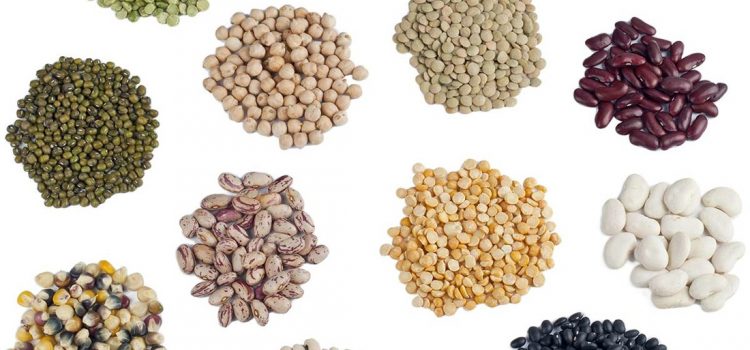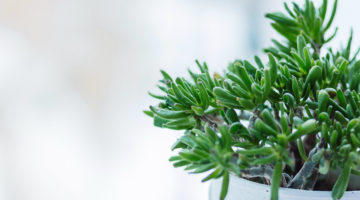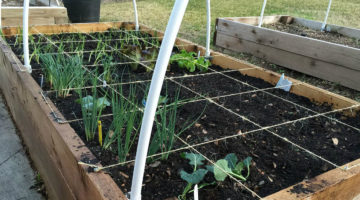A seed is the start of a plant and a start of a new garden, which is why seeds are so important. But nowadays, because many different kinds of plants are so available to us, many different types of seeds are, too. So I thought that we should look at some of the most popular seed types that are on the market right now and decipher what each of them mean.
But before we get into seed types I want to quickly look at the structure of seeds. Essentially plant seeds consist of 3 parts. On the very outside there is the seed coat which is a protective layer that protects the contents of the seed from damage, water and so on. Then on the inside of the seed there is the embryo which, as you might guess from it’s name, is a baby plant that will emerge from the seed and grow into full on plant once the seed is planted. There usually are two types of embryos – ones with single cotyledon, these types seeds are called monocots, and embryos with two cotyledons, whose seeds are called dicots. And then there is the endosperm, which encloses the embryo and which provides a source of nutrition for it, so the embryo can start the germination process once the conditions are right. Now that we understand the seed basics lets get to seed types and what they all mean.
Essentially plant seeds consist of 3 parts. On the very outside there is the seed coat which is a protective layer that protects the contents of the seed from damage, water and so on. Then on the inside of the seed there is the embryo which, as you might guess from it’s name, is a baby plant that will emerge from the seed and grow into full on plant once the seed is planted. There usually are two types of embryos – ones with single cotyledon, these types seeds are called monocots, and embryos with two cotyledons, whose seeds are called dicots. And then there is the endosperm, which encloses the embryo and which provides a source of nutrition for it, so the embryo can start the germination process once the conditions are right. Now that we understand the seed basics lets get to seed types and what they all mean.
Heirloom seeds
A common type of seeds are the so called heirloom seeds or sometimes these seeds also are called the heritage seeds or crops. These seeds essentially are seeds from vegetables and flowers that have been passed down from generation to generation and therefor they will manifest into so called old-fashioned plants. Meaning that the plants grown from heirloom seeds will have traits that you probably won’t find in new variety seeds of the same plant. These seeds are sold, so people could keep growing old-time favorite plants, that will produce consistent yields of the same veggies or flowers. On top of that veggies grown from heirloom seeds usually not only taste better, but also are more nutritious, which I think is reason enough to try growing plants from heirlooms.
Open-pollinated seeds (OP’s)
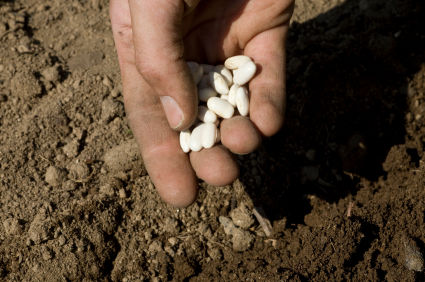 Another term that is often found on seed packaging is open-pollinated seeds or sometimes shortened to OP seeds. What this means is that a plant grown from OP seed will produce the same type of plant, as was its parent plant, even if the plant gets pollinated by different representative of the same variety plant. Basically, if you have a open-pollinated seed of a red rose, even if it gets pollinated by the pollen of a different red rose plant, in the end the plant will still produce the same red roses as did the plant from which the seeds were taken. This is why OP seeds usually are referred to as seeds that will breed true.
Another term that is often found on seed packaging is open-pollinated seeds or sometimes shortened to OP seeds. What this means is that a plant grown from OP seed will produce the same type of plant, as was its parent plant, even if the plant gets pollinated by different representative of the same variety plant. Basically, if you have a open-pollinated seed of a red rose, even if it gets pollinated by the pollen of a different red rose plant, in the end the plant will still produce the same red roses as did the plant from which the seeds were taken. This is why OP seeds usually are referred to as seeds that will breed true.
Hybrid seeds
Then the opposite of OP seeds are the hybrids and as you might already tell, these seeds have come from a plant that has cross pollinated with another variety of the same plant species, producing a seed that will grow into a hybrid of the two parent plants. Most vegetable seeds out there are hybrids, with exception of veggies that are hard to cross-pollinate, like lettuce, beans and peas. The hybrid seeds enable us to cross two plants two desirable traits and in the end get a plant that has both of these traits. For example if you want a tomato plant that is both resistant to diseases and produces yield early, then by crossing two plants that each have one of these traits, you can get a hybrid tomato plant with both will have earliness and disease resistance traits.
Genetically Modified Organisms (GMO’s)
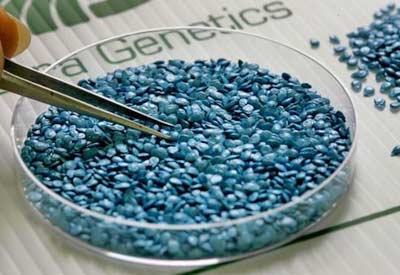 Then there are the notorious GMO plants and seeds from which these plants grow. In their essence the GMO plants are plants that contain genes that have been implanted into them from whole other plants or organisms (like algae, fish or even frog) or plants from which a certain gene have been removed. This is done to ensure that the plants have specific traits be it that they are disease resistant, fast growing or give bigger yields. And although it is a myth that GMO plants aren’t very successful at breeding, they are more expensive and therefore usually only huge grow operations use GMO seeds to grow their crop.
Then there are the notorious GMO plants and seeds from which these plants grow. In their essence the GMO plants are plants that contain genes that have been implanted into them from whole other plants or organisms (like algae, fish or even frog) or plants from which a certain gene have been removed. This is done to ensure that the plants have specific traits be it that they are disease resistant, fast growing or give bigger yields. And although it is a myth that GMO plants aren’t very successful at breeding, they are more expensive and therefore usually only huge grow operations use GMO seeds to grow their crop.
Organic seeds
And finally I wanted to mention also organic seeds that are not so much as a seed type but that also often gets mentioned on seed packaging and that in a way is opposite to GMO seeds. Organic seeds are seeds that have been collected from organic grown pants. Nowadays when it comes to organic grown plants and therefore also seeds, the rules differ from state to state, but the common thing in all of the states is that to call plants organically grown there cannot be a lot of chemicals used on these plants and the plants also cannot be artificially modified. Usually these types of seeds are more expensive, but for those who want to be sure that they are growing fully organic crops, you need to start with buying organic seeds, too.

